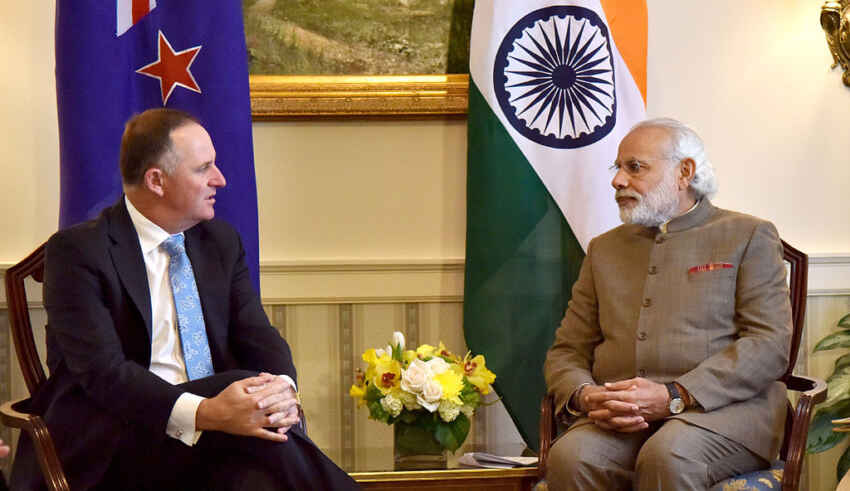
Following a hiatus of more than ten years, India and New Zealand want to resume their free trade negotiations – an important moment in their bilateral relations. The talks, which initially stalled in 2010 due to issues such as market access for dairy products, are now to be relaunched. The first round of negotiations is planned for next month. The proposed free trade agreement aims to achieve balanced results that promote supply chain integration and improve market access for both countries. These renewed efforts, driven by Prime Ministers Christopher Luxon and Narendra Modi, reflect a shared commitment to promoting a multi-faceted partnership. The two countries will also deepen ties in the areas of defense, security, sports, environmental sustainability, and maritime security.
India has historically pursued protectionism which goes back to its colonial past. Tariffs were used to protect critical sectors such as agriculture, automotive, electronics and key industries such as chemicals, metals and textiles. These measures served to shield local businesses and jobs but were also an important source of revenue for the government. An abrupt reduction in tariffs risks exposing domestic industry to strong foreign competition, jeopardizing fiscal stability and hindering India’s ability to fund key priorities such as infrastructure and social programs. Despite years of skepticism about free trade, India is now changing course. India has recently embraced bilateral trade agreements, including an agreement with the European Free Trade Association after 16 years of negotiations. India has also started talks with the EU on a free trade agreement, which is expected to be finalized by the end of this year.
The threat of Trump’s reciprocal tariffs has caused considerable uncertainty for India’s export-oriented economy. These tariffs would eliminate India’s current cost advantages in the US market, making Indian products less competitive and threatening key industries such as chemicals, textiles and pharmaceuticals and the jobs associated with them. This potential economic burden has prompted India to proactively seek alternative trade partnerships. The resumed free trade talks with New Zealand now can provide an opportunity to diversify export markets and strengthen strategic relationships in the Indo-Pacific region. In addition, New Zealand could benefit considerably from the free trade agreement with India, as India is a significant export partner. The agreement could improve market access for New Zealand products and deepen trade relations.
This serves as a good example of the changing patterns in international order. For multiple years, the consensus, particularly in the United States, was that international cooperation would secure peace and prosperity. That free trade would boost economic growth, create jobs and increase incomes. However, the rise of protectionism – not just in the US, but in various countries – signals a geopolitical shift. Countries now face the challenge of navigating this wave while protecting their economic interests. New Zealand, known for its low-tariff trade policy, continues to uphold its commitment to open markets. Conversely, India’s recent pivot in trade strategy reflects its recognition of changing global trends. Time will tell how effective such strategies will be in the long run.
The success or failure of the upcoming free trade talks between New Zealand and India will not only determine bilateral relations, but will also contribute to how economies adapt in a time of uncertainty.
By The European Institute for International Relations















